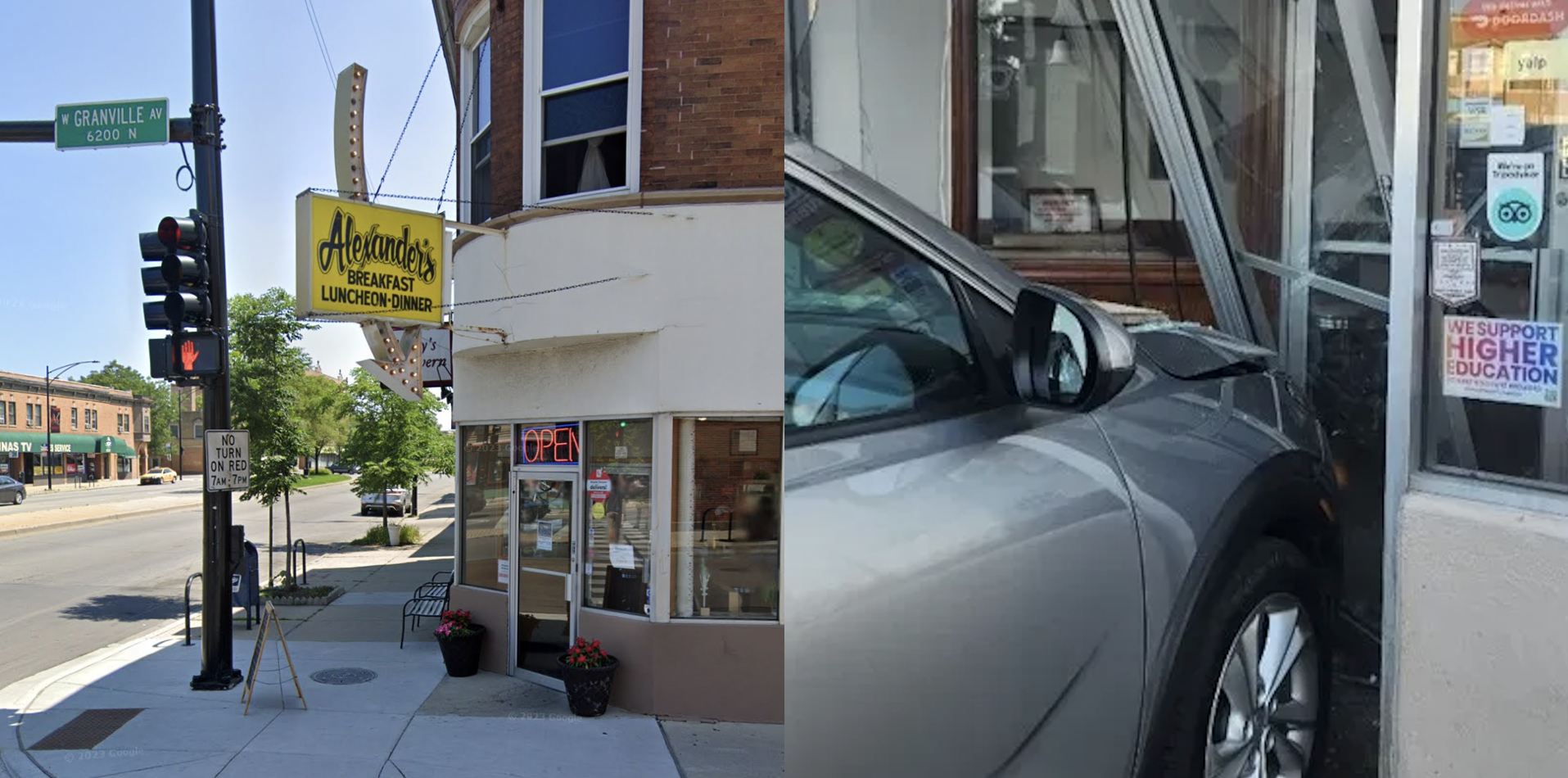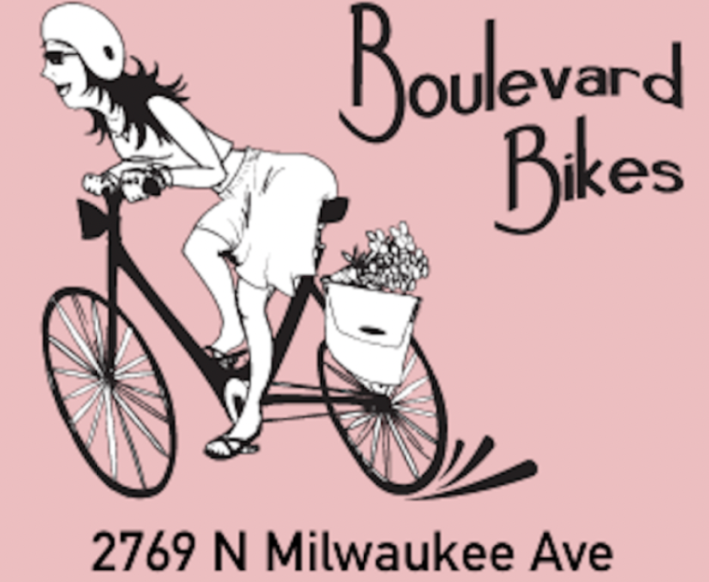
You can use the Active Transportation Alliance's online form to email decision-makers and let them know you support lowering Chicago's default speed limit from 30 to 25.
Today, Chicago got one step closer to winning safer streets.
After some heated discussion among alderpersons, the City Council's Committee on Pedestrian and Traffic Safety voted eight to five to approve an ordinance lowering our city's default speed limit from 30 mph to 25 mph. The speed limit for alleys would be 15 mph.
While there's a full Council meeting tomorrow, legislation sponsor and committee chair Ald. Daniel La Spata (1st) said he's going to let the proposal simmer a bit longer, and introduce it for a final vote sometime before this New Year's Eve. If a majority of Chicago's 50 alderperson give the ordinance a thumbs-up, the new speed limit would go into effect a year later, on January 1, 2026.
In addition, the committee signed off on another law to launch a pilot that would let citizens enter the license plates of drivers standing or parked in bus or bike lanes into the 311 system. After multiple violations and warnings, scofflaws would be ticketed. That program might start as early New Year's Day of 2025.
Studies suggest that lowering Chicago's speed limit by 5 mph mph would be very effective for reducing serious and fatal traffic crashes. A National Traffic Safety Board report found that if a driver strikes a person at 40 mph, the victim will almost alway die, but at 20 mph they will almost always survive.
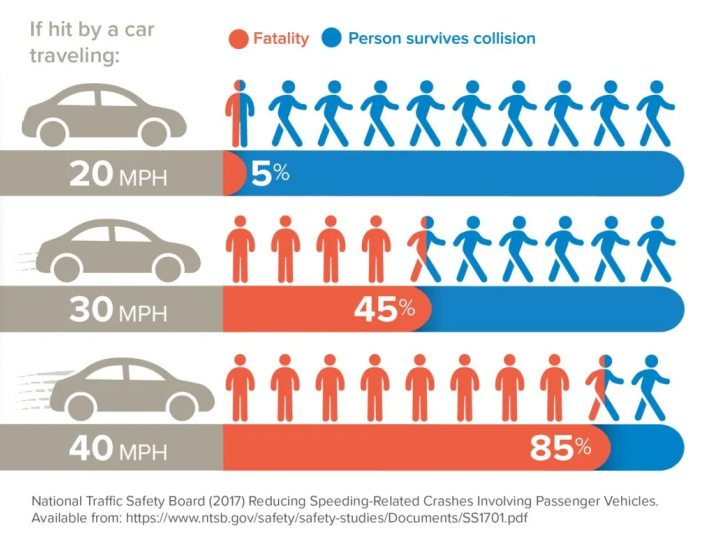
But even if we change the default speed limit signs from 30 to 25 mph, does that mean motorists will actually drive slower, and will that really save lives? Yes, indicate the numbers from peer cities.
When Boston made the same change, deadly crashes involving speeding over 35 mph dropped by nearly 30 percent. And after New York City lowered its speed limit from 30 to 25, there was a 23 percent drop in yearly pedestrian fatalities, with the city's death rate being the lowest in a century. So it's really not a question of whether Chicago should lower our speed limit, but when.
During today's public comment period, Tim Shambrook, whose daughter Lily, 3, died in a June 2022 bicycle crash caused by a truck driver parked in a bike lane, voiced support for the bikeway enforcement pilot, and the speed limit change. He noted that requiring drivers to travel at 25 mph on surface streets in our 25-mile-long city wouldn't make it more difficult for drivers to get where they need to go, but "it [would make] our city so much safer."
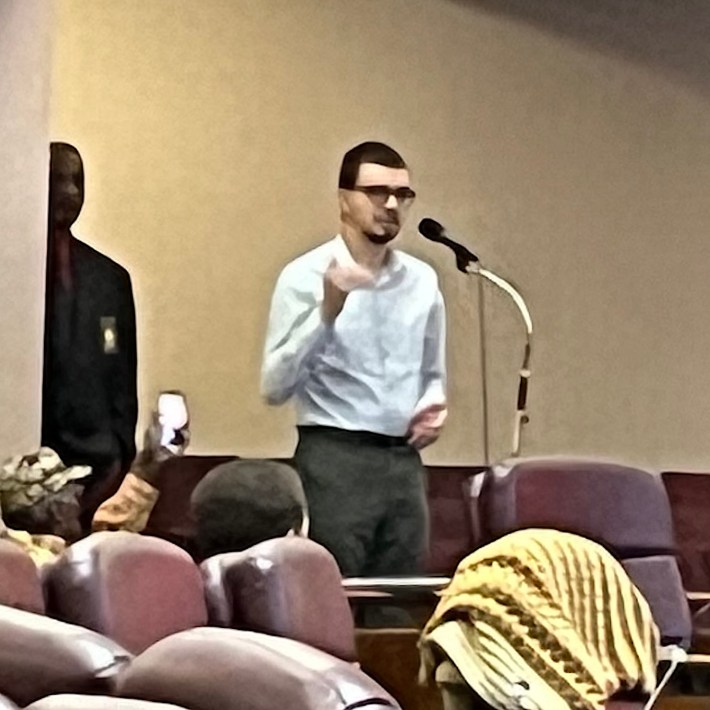
Another advocate for the lowering the speed limit was Alex Montero from the local chapter Strong Towns, which works to make U.S. cities more walk/bike/transit-friendly, and financially sustainable. He pointed out that a 25 mph rule would also inform the "speeds at which our streets are designed... including how [the Chicago Department of Transportation] prioritizes bike lanes on the side, the width of sidewalks, and the width of [mixed-traffic] lanes, which is the primary determinant of how safely people actually drive from day-to-day. This is not just a symbolic decision." A few safety improvements that currently aren't being considered for some main streets, that might be facilitated by a 25 mph speed limit, include raised crosswalks, protected bike lanes, and corner bulb-outs.
Active Transportation Alliance Advocacy Manager Alex Perez read a statement from a baker's dozen sustainable transportation, community, and environmental organizations in favor of lowering the speed limit. "Traffic safety is a public health and safety crisis in Chicago and speeding and reckless driving by motorists are at the heart of the problem," it said. "According to CDOT, 136 people were killed in traffic crashes in 2023. Speeding and reckless driving were involved in 68 percent and and 84 percent of those fatal crashes, respectively."
"Like so many problems facing our city, this issue reflects deeper inequities," the statement continued. " A disproportionate burden of traffic fatalities is carried by Black communities on Chicago’s South and West Sides. According to CDOT, two-thirds of people killed in traffic crashes in Chicago are Black." That's a particularly troubling statistic because African Americans only make up about 30 percent of our city's population.
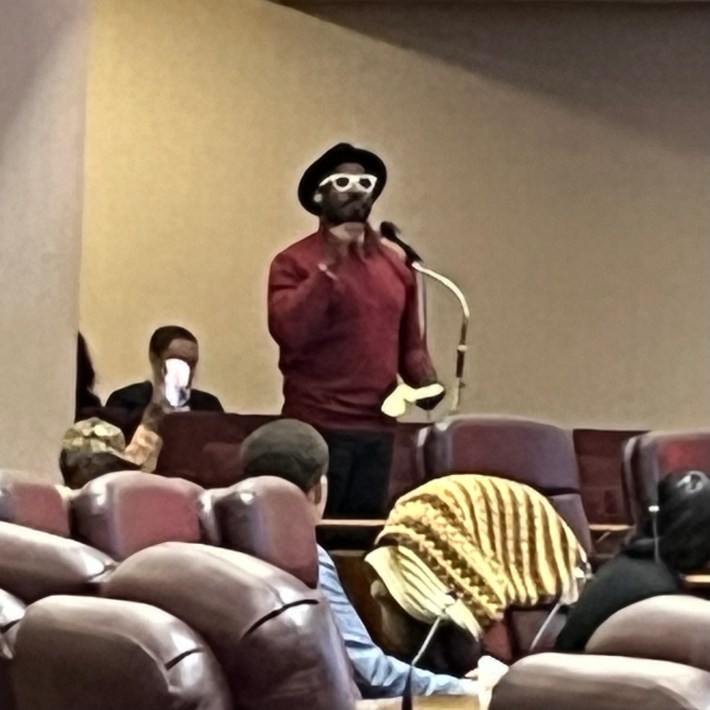
Despite those facts, a couple of the public commenters said they believe the speed limit change would hurt Black residents. "Speed limits – wow," said one man. He argued that the new ordinance would result in more traffic stops of African-American drivers, which could easily escalate to violence. Longtime City Hall testifier George Blakemore echoed the sentiment that the 25 mph speed limit would lead to more over-policing. "Walking while Black, talking while Black, driving while Black," he said.
After the public comments Ald. La Spata gave a "preamble" to the vote, explaining why the speed limit reduction is needed. He noted the 136 Chicago traffic fatalities last year, and said there were 2,173 total serious injuries and deaths from crashes in our city in 2023. To put that in context, the alder said there were 2,943 shootings that year. "So about... the same number hit by [drivers], were hit by bullets in the city of Chicago last year," he noted. "We take gun violence very seriously, and we have to, and we should. The work here is to make sure that we're taking traffic violence as seriously as we do gun violence."
Ald. La Spata argued that Vision Zero, the goal of eliminating all serious and fatal crashes, is not a "utopian idea." He noted that four Chicago wards had no traffic deaths last year, with three of them represented by alders on the committee: Ald. Desmon Yancy (5th, Mid-South Lakefront), Ald. Timmy Knudsen (43rd, Lincoln Park), and himself (1st, Near Northwest Side.) "We know that there are specific, and actionable tools that we can use" to reduce the number of serious and deadly collisions, he said, with the lower speed limit being one of them.
Ald. La Spata mentioned that he had also introduced a resolution to study racial discrepancies in Chicago's automated enforcement program. He noted that studies have found that a disproportionate number of speed and red light violations documented by cameras involved vehicles registered in predominantly Black and Latino neighborhoods. He added that the tickets can have devastating financial consequences.
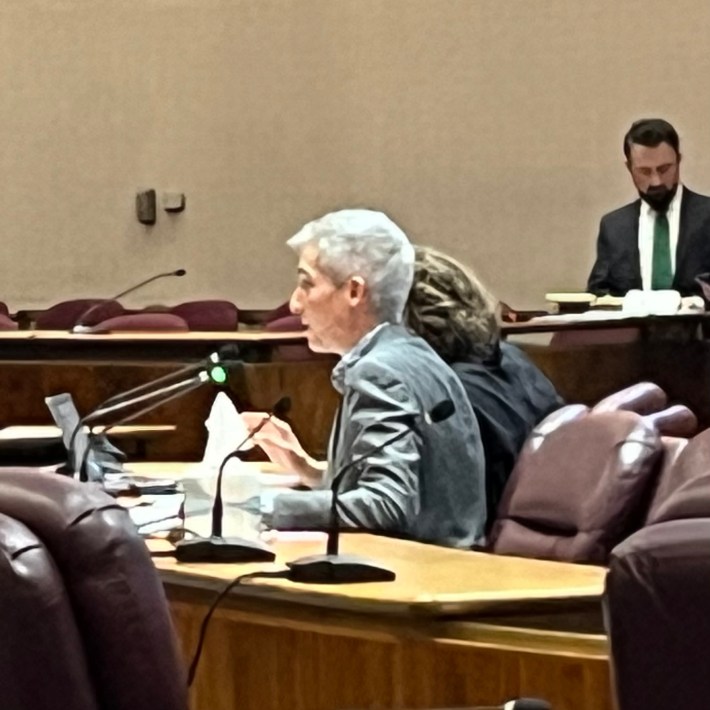
(In April 2022, the City launched the Clear Path pilot program, which halved traffic fines for lower-income residents, so a ticket for speeding by up to 10 mph cost only $17.50. The initiative also offered a ticket debt forgiveness program.)
The alderman said the greatest concern he had heard about the proposal to lower the default speed limit to 25 was that it would be perceived as an attempt to fill the City's coffers. Mayor Brandon Johnson shared this worry, although he recently voiced support for the ordinance. "The question is, can we do this equitably," Ald. La Spata told the committee. "The goal is to change driver behavior, not to raise money for the City."
Later in the meeting, the Far Southwest Side's Ald. David Moore (17th) said he wanted to get rid of the automatic enforcement program altogether, despite the fact that Chicago's red light and speed cameras have saved hundreds of lives. He asked whether the lower speeding and fatality rates achieved in other cities were due to police writing more tickets.
"We should not expect to see officers acting any differently," Ald. La Spata responded. He added that Boston and NYC achieved lower crash numbers without major changes in enforcement or infrastructure, but simply by changing their speed limit.
Other Council members who voiced skepticism about the lowering the speed limit during the meeting included Ald. Brian Hopkins (2nd, downtown), Ald. Jason Ervin (28th, West Side), and Ald. Nicholas Sposato (38th, Far Northwest Side). Ald. Ervin said crime, unemployment, and homelessness were more important issues to his constituents than traffic violence. (He also told Ald. La Spata that he found his use of the term "traffic violence" offensive.)
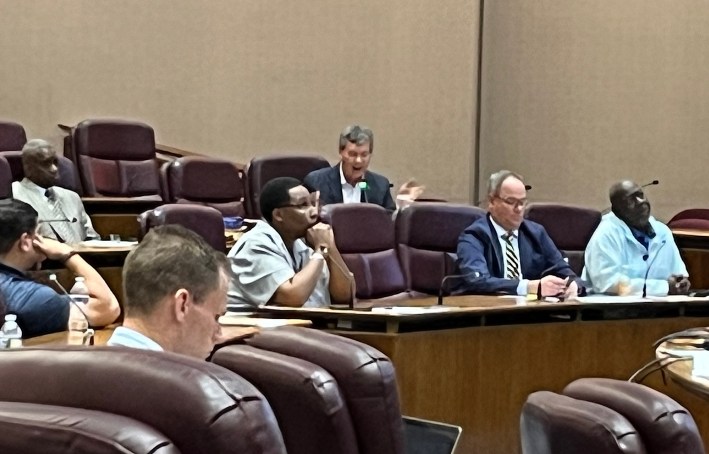
Some of the skeptics, such as Ald. Hopkins, argued that lowering the citywide speed limit is a "one size fits all fits all" solution, inappropriate for more car-centric parts of town. However, these parts of town tend to have higher traffic fatality rates, and could benefit the most from safer speeds.
But the Southwest Side's Ald. Michael Rodriguez (22nd) sensibly noted that if Chicago's peers successfully lowered their speed limits to 25 mph years ago, our city should do so now. "We need to catch up with the times," he said. Ultimately, a majority of alderpersons on the committee shared that point of view, and the legislation passed.
"It was a very helpful and nuanced debate about ways in which we can use speed limits and other traffic enforcement regulations to improve pedestrian and traffic safety with the goal of bringing traffic fatalities down to zero," the North Side's Ald. Matt Martin (47th), a Safe Streets advocate, told Streetsblog after the meeting. "I commend Ald. La Spata for his leadership on this important issue and his collaboration with experts, community groups, the Mayor Johnson administration, and the City Council."
Lowering Chicago's speed limit is a heavy political lift, but the data shows that it's the right thing to do. Streetsblog Chicago will help spread the word about that fact as the ordinance heads towards a potentially challenging full City Council fight.
H/T to Block Club Chicago's Quinn Meyers, whose earlier reporting shed some light on a few points for this article.
You can use the Active Transportation Alliance's online form to email decision-makers and let them know you support lowering Chicago's default speed limit from 30 to 25.

Did you appreciate this post? Please consider making a tax-deductible donation, to help keep Streetsblog Chicago's sustainable transportation news and advocacy articles paywall-free.
